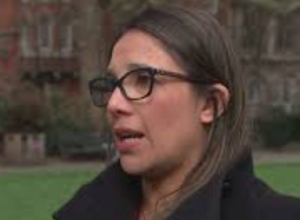Online stalking appears to be on the increase since the start of the coronavirus lockdown, according to a Brighton charity.
Veritas Justice has seen more reports of online stalking over the past few weeks, Sussex Police said today (Monday 20 April).
The force said that the rise was “thought to relate to the current lockdown and isolation as a result of the coronavirus outbreak”.
It added that help and support was available, including a new online chat facility, funded by the Sussex police crime and commissioner and delivered by Veritas Justice.
The online service is intended “for victims of stalking to easily reach out for help and advice during this time”.
Details are on the Veritas website and the police crime and commissioner’s website.
Sussex Police said that the force had recorded 1,005 stalking offences in the year to the end of March 2018.
The number rose to 1,547 in the 12 months to the end of March last year and went again to 2,020 in the year to the end of last month.
The force said: “Stalkers are fixated and obsessive offenders who will not stop.
“Statistics show that one in six women and one in 12 men will experience stalking nationally but this is believed to be grossly underestimated.
“And when they become victims, they tend not to report to the police until the 100th incident.
“Sussex Police and the Sussex police and crime commissioner are reminding people of assistance and advice available in addition to expert investigation in support of National Stalking Awareness Week.”
National Stalking Awareness Week starts today and runs until Friday (24 April) with a tagline of “See Stalking Clearly” and a focus on cyber-stalking and online stalking during the current covid-19 pandemic.
The Sussex police and crime commissioner Katy Bourne has campaigned to raise awareness among police forces about the issue and has been subjected to stalking herself.
And Sussex Police came in for criticism for its response to stalker turned killer Michael Lane who murdered Portslade teenager Shana Grice in August 2016.
She was given a fixed penalty notice for wasting police time in response to one of the five complaints that she made in the months before Lane killed her.
Sussex Police said today: “Always report stalking to the police who are ready to respond to calls and help victims. Police are already advising and supporting more stalking victims than ever.”
The force said that, after the Metropolitan Police, it recorded more offences than any other force, as more victims felt confident enough to come forward. And the figures locally had risen 100 per cent in three years.

Detective Chief Inspector Mick Richards said: “We are committed to continually improving our understanding of stalking and harassment and our response to it.
“We have improved training for officers and staff and ensured specialists are on hand across the county to offer advice and support on a daily basis to keep people safe and feeling safe.
“We want victims to be confident and know we will take all reports seriously.”
A new law came into effect in January, creating stalking protection orders which run for a minimum of two years.
Sussex was the first force in the country to secure a stalking protection order in court and has already secured eight in total, with five applications due to be heard in the coming fortnight.
The orders give police extra powers to protect victims or anyone connected with them in stalking cases and make it easier for officers to enforce prohibitions or other requirements.

Detective Chief Inspector Richards added: “During the current covid-19 pandemic, your safety online is particularly important and there are a number of steps you can take to protect yourself.
“In particular, don’t be tempted to ‘block’ your caller, delete messages or throw away gifts as they could be used as evidence later on.
“This might include audio recordings, films or pictures, copies of emails, text messages, screenshots and similar material. You can also keep a log of all the incidents that have occurred.
“Always report it. Getting help early will assist in protecting you. This can be done by contacting us online, by calling 101 – or 999 in an emergency.”
Police and crime commissioner Katy Bourne said: “The theme for this week is ‘See Stalking Clearly’ and it’s very pertinent, especially during this crisis, that we all do start to see and take seriously these types of crimes.
“The rise in cyberstalking due to the ‘lockdown’ concerns me deeply. We know all too well that this behaviour causes extreme distress and can unfortunately escalate quickly.
“The severity of risk to a victim is now defined by the amount of time invested by the perpetrator in their obsession.
“So, with many victims receiving over 100 text messages, emails and/or phone calls a day, we know that these strong fixations could have a more sinister outcome.”

Campaigners have used the word “FOUR” to help people understand the nature of stalking by describing it as
- Fixated
- Obsessive
- Unwanted
- Repeated
…
Mrs Bourne said: “If you are experiencing behaviour that is fixated, obsessive, unwanted or repeated, then you are being stalked.
“It is a crime and you will be taken seriously when you ask for help. Please still report to the police and reach out to the team at Veritas Justice, they will both continue to be there for you whenever you need them.”
Veritas Justice founder Claudia Ortiz said: “For this National Stalking Awareness Week we are focusing on ‘Seeing Stalking Clearly’.
“More than ever it is important that stalking victims remain a visible priority during this crisis by enabling them to access the support and advice they need during these challenging times.
“We are already seeing an even more significant shift to cyber and online stalking behaviours, which are having a very negative impact on individuals and families.
“We are acutely aware that as domestic abuse increases so will stalking, anxiety and isolation, so we hope that the online chat facility will offer additional and flexible support to those affected by this devastating crime.
“Stalkers will continue stalking during lockdown and we will continue working with clients and partners to adapt to the changing landscape. We want to reassure victims that we are still here for them. You don’t have to suffer in silence.”








